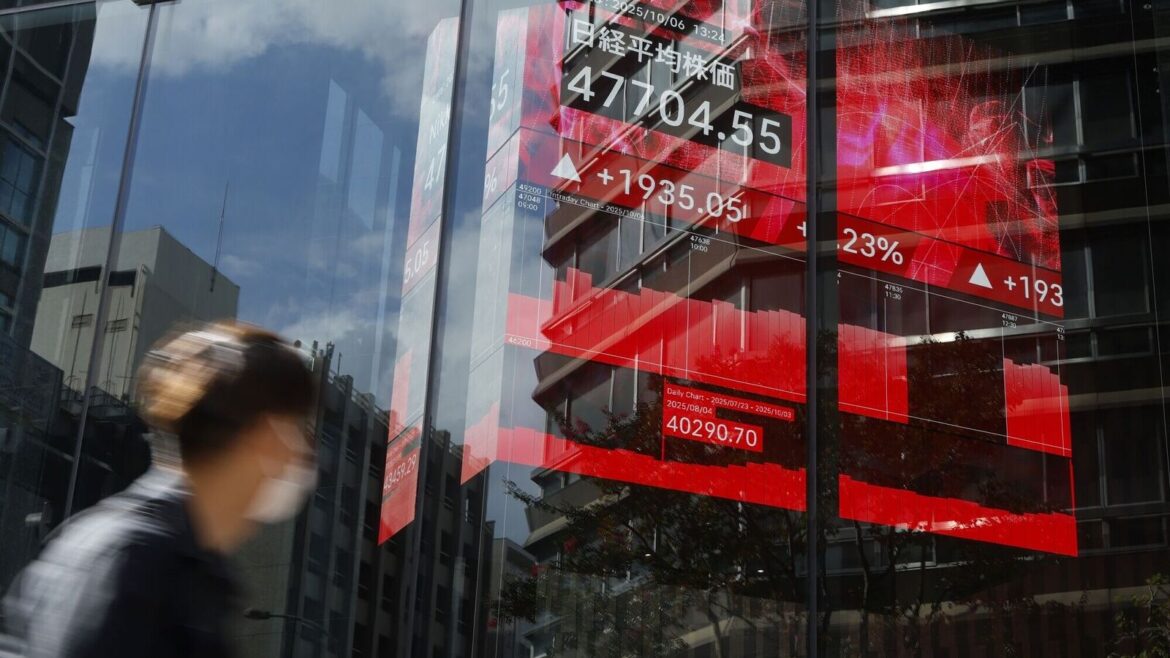Efforts to encourage investing in Japan, where many have long kept a big chunk of their wealth in deposit accounts, have been slow to take root. But a revamped government program has lowered key hurdles to investment, making it easier to build assets long-term.
The return of inflation is likely fueling the shift too, eroding the value of deposits in real terms—in other words, the cost of goods is outpacing interest earned.
“Japan has shifted from a prolonged period of deflation to inflation, which is significantly changing the approach to asset management,” said Tomoo Horie, chief executive at Japan Asset Management, which gives financial advice to workers at Japanese electronics maker NEC and other firms. “The idea that people need to invest to beat inflation has become widespread.”
Ryuji Kurashima, 57, is one of the growing crop of Japanese citizens dipping their toes into the market in the hunt for yields.
Kurashima started investing in global indexes last year to take advantage of a tax-exemption program known as the Nippon Individual Savings Account, or NISA. Emboldened, he is now considering adding bonds to his portfolio.
When NISA launched in 2014, it had just five million account holders, according to the Financial Services Agency. After an overhaul in January 2024 raised investment limits and removed the tax-free holding period, that number increased sharply.
Kurashima, who does system maintenance at NEC, was one of the nearly 27 million who signed up for the program, which facilitates investing in assets like stocks and mutual funds. He took the plunge after he began to worry that his take-home pay wasn’t increasing much.
Stagnant wage growth has long been an issue in Japan that policymakers have been pushing to address.
“To be honest, I had almost given up. I felt the Japanese economy would just continue to get worse,” said Kurashima. “Even if I put my money in a savings account, or even a fixed deposit, the interest rates are just too low.”
Salaries are finally rising more, but so too, are prices. As Japan’s population ages and pension concerns grow, more individuals are seeing the need to build assets to fund their retirement.
Individuals are the second-biggest investor base in the Tokyo stock market after foreigners, in terms of trading activity.
Japan Exchange Group data shows that the number of individual shareholders reached a record high in the fiscal year that ended in March, growing at the fastest pace since the asset-bubble era of fiscal 1987.
Looking to get a slice of the action, some companies are offering gifts to draw in new retail investors.
Nomura Investor Relations figures show that the number of companies offering shareholder gifts increased to 1,580 as of March, the highest since 1992 when the data series began.
Shareholder benefits are a big pull for many beginner investors, said Hirofumi Chiba, senior communication strategist at Nomura Investor Relations. Newbies might not know the ins and outs of a dividend, but they are drawn in by a gift, he added.
The strategy could be locking in long-term investors for the likes of SoftBank and NTT, and analysts expect individuals to keep entering the market.
Morningstar’s Daisuke Motori expects the total cumulative purchase amount for NISA to exceed 100 trillion yen by the end of 2027, or about $653 billion.
With more investors looking to build up long-term assets, the retail investing boom is shaping up to be more than a passing trend, Motori said.
Kurashima, the NEC employee, plans to keep working until he’s 90 years old, while continuing to make investments. He expects his financial conditions to turn positive on his 80th birthday.
“I’m looking forward to seeing the profits generating more profits,” he said.
Write to Megumi Fujikawa at megumi.fujikawa@wsj.com


AloJapan.com